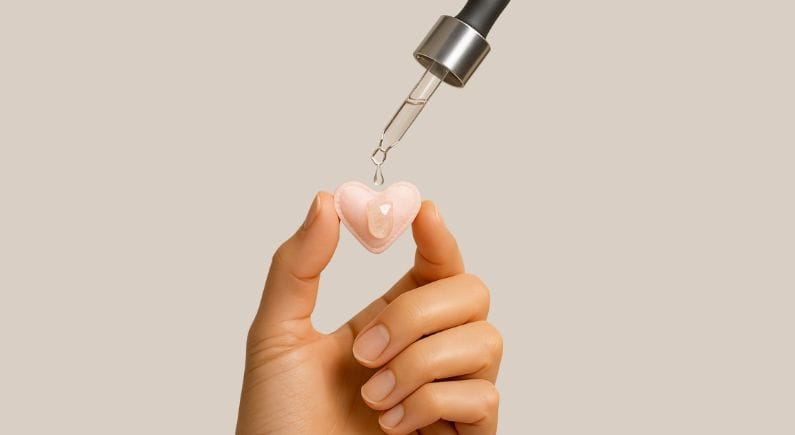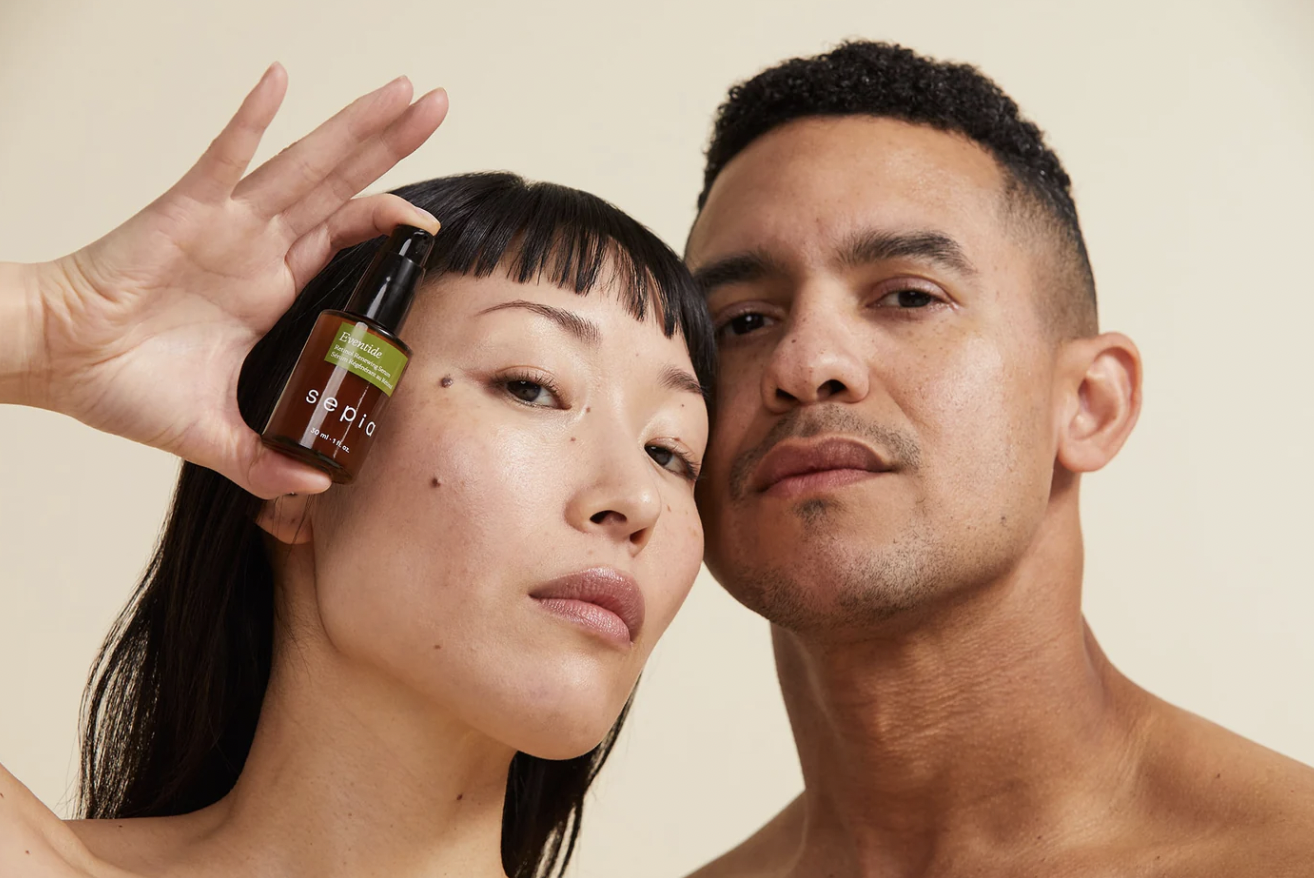
Sepia: making skincare clinical trials more inclusive
With a focus on inclusivity, sustainability and transparency, Sepia is on a mission to provide inclusive skincare products for everyone and all skin tones.
Co-founded by Mike Modula, a 20-year beauty industry veteran who previously held executive positions at Sephora, and Anna Bueno, a clinical researcher with 15 years’ experience in the healthcare sector, Sepia is a beauty brand that’s built with inclusion and sustainability at the core.
“The brand was founded with a concept-to-counter inclusivity approach,” says Modula. This is what sets Sepia apart from other beauty brands on the market. Inclusion from start to finish. The inclusive concept-to-counter approach takes into consideration the entire development process - from ingredients in the product and how its formulated to education, marketing and inclusive clinical trials.
“When you look at clinical studies, they’re just not diverse,” explains Modula. “They’re not very transparent either and you often don’t even know who they are testing it on or if they do share that information, they never share the skin tones.”
It was important for the brand to conduct inclusive clinical studies on all skin tones to ensure everyone is included, represented and “create a sense of belonging for people in the skincare realm” says Modula.

Diversity is a fact. Inclusion is a choice. Belonging is an outcome. We utilise inclusion as a lens for making all significant brand decisions so that everyone can feel seen.
‘Skinclusive’ Clinical Studies
For the brand’s debut Eventide Retinol Renewing Serum (£69/$85), an overnight treatment, they partnered with a third party organisation to test the product on all six Fitzpatrick skin phototypes. “It was important for us that the first product was a treatment product because of the ability to really dive into the clinical study element of it,” says Modula. It took around two years of product development and testing before they launch onto the market in August 2023.
The clinical study featured 43 participants across diverse ethnicities including Asian, Black or African American, Hispanic or Latino, Native American or American Indian, and White or Caucasian, as well as genders. The results of the 12-week study are included on the brand’s website.
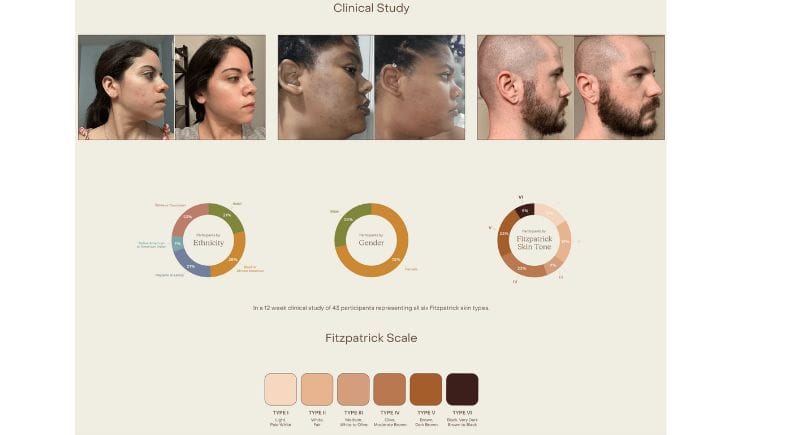
Finding a clinical organisation that could test on all six Fitzpatrick skin types was a challenge and was also more expensive. “It took us a long time, about eight months of searching, to find an organisation that would be able to meet these criteria. It ended up costing us a little bit more, but for us it was worth it,” says Modula.
Modula explained that they are looking at ways to make the clinical tests even more inclusive, for example, including non-binary people that don’t identify as male or female and potentially expanding the mix of ethnicity beyond just Asian but including more specific ethnicities.
We'd love to see more clinical testing organisations that offer testing on all six Fitzpatrick types without charging people three times as much.
Ingredient Transparency
The brand’s formulas are all vegan and cruelty-free and they worked with a leading innovation lab and a BIPOC cosmetic chemist to develop the formulation which uses clinically proven active ingredients in optimal dosages that are gentle for all skin tones, including melanin rich skin who are more prone to hyperpigmentation.
The Eventide Retinol Renewing Serum features 0.3% encapsulated retinol along with copper + amino acids, lipids + ceramides, hyaluronic acid and chamomile. The brand opted for retinol as the key ingredient for its first product as it is a ‘gold standard ingredient’ but getting the right delivery system was key. The product contains 0.3% encapsulated retinol, which is said to deliver vitamin A via a time-released technology.
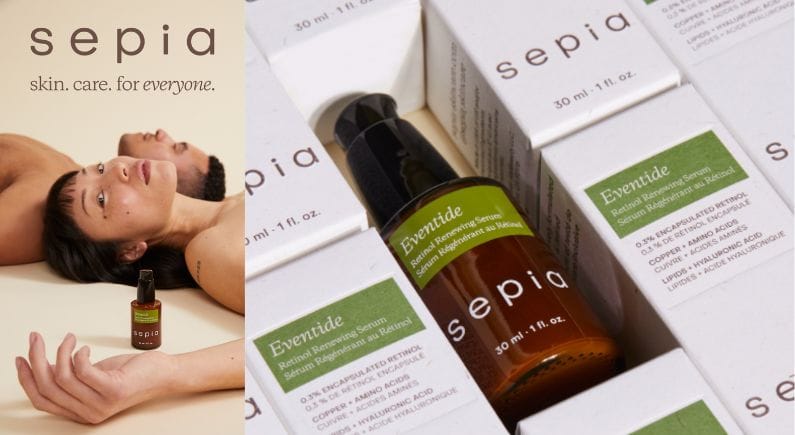
Transparency is also important for the brand when it comes to providing accurate information about the active ingredients. Furthermore, educating consumers about the importance of correct dosage and demystifying active ingredients is paramount.
Sepia has partnered with ClearForMe, a tech platform that focuses on ingredient transparency, to provide consumers with greater transparency. A full list of all the ingredients used in the Eventide Retinol Renewing Serum is listed on the website in an easy to digest format that includes a simple definition and a short description of the main function and benefit of each ingredient.
Eco-conscious Packaging
For the packaging, Sepia has opted for a 30ml glass bottle that comes with a plastic pump for its first product launch. However, the brand is exploring aluminium for future products in order to minimise the use of plastic. The brand also opts for lightweight materials as much as possible to reduce footprint.
To further minimise environmental impact, Sepia has partnered with Bluebird, a platform that enables brands to measure and improve the sustainability of their products, to provide consumers with greater transparency around the packaging’s carbon emission and waste impact, which is highlighted on the website.
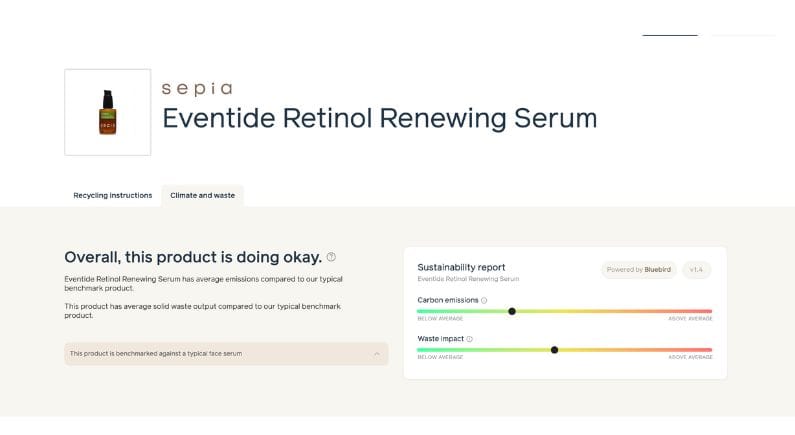
They have also partnered with Waste Revolution, an Australian organisation that helps to offset your plastic use, and 1% For the Planet, whose members donate at least 1% of annual sales to environmental charities.
Marketing Campaigns
Sepia's marketing campaigns is all about showcasing real skin health rather than unrealistic beauty standards or perfect skin. The brand does not retouch any of its photos that they use on their social media platform or website. "We don't want to create this false sense of perfection," says Modula. "It's really about just embracing who are you in the skin you're in."
A Slow Beauty Approach…
Unlike other brands that launch multiple products all at once, Sepia intentionally launched with just one item and focuses on a more considered approach to beauty. “We believe in a slow beauty philosophy. So, it’s not about throwing a bunch of products out there and seeing what sticks,” explains Modula. “We are much more into a skin minimalism philosophy, products that do more with less or have a multi use function.”
For the second product, Sepia will launch a daytime treatment in summer 2024.

